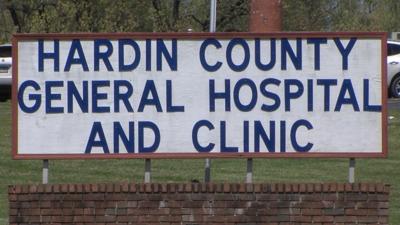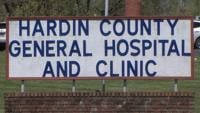ROSICLARE, Ill. (WSIL) -- Nestled in the Shawnee National Forest is a hospital that serves residents in Illinois' two least populated counties.
Hardin County General Hospital opened in 1958 in Rosiclare. At the time, the town was known for being the fluorspar capital of the world.
"Had it not been for the mines... It's really doubtful that there would've been a hospital," said hospital CEO Roby Williams, who has served in the role since 1981.
The hospital is still in good shape, Williams says, although the signature coal furnace remains despite not being in use. One can describe the hospital's building as 'unique', a word that Williams often hears.
But Williams also hears the word 'how' just as often to describe the hospital's perseverance. That's because 87 rural hospitals across the U.S. have closed their doors since 2015, according to the American Hospitals Association.
"To those of us that have worked here in this hospital and lived in this area it's critically important for us to see this hospital survive and we're going to go to the wall to see that it does," Williams said.

Hardin County General is a critical access hospital. That means the hospital receives reimbursement for each Medicare patient it serves. But after the pandemic began, patients stopped coming in due to virus fears.
But they did get relief thanks to the American Rescue Plan.
"Had it not been for those grant funds... I'm not sure from a cash perspective that we could've survived this," Williams said.
The money helped the hospital purchase equipment that Williams deemed necessary to have. That included a CT scanner, a treadmill and sonogram, all state-of-the-art equipment.
But Williams says it's the staff that has been the hospital's most valuable asset.
"If there' hadn't been opportunities for them to go somewhere else to work there certainly has and is now," Williams said. "For them to stick with us I feel is a testament to them."
But Williams worries about the financial ramifications from COVID-19. Williams says hospitals haven't felt the financial impact yet which is why he's concerned about the future of rural hospitals if federal funds stop coming in.
"Rural hospitals have to exist I mean you can't close them all," Williams said. "To be able to have that I think there's going to have to be some reconsideration on some of the reimbursement."
But until then Williams says the hospital will continue to care for its patients until they no longer can.
"Our first priority is to take care of patients and we do it whether we're paid or not There's no service that we deny because of somebody's inability to pay," Williams said.
"We've never been quick to give up."














